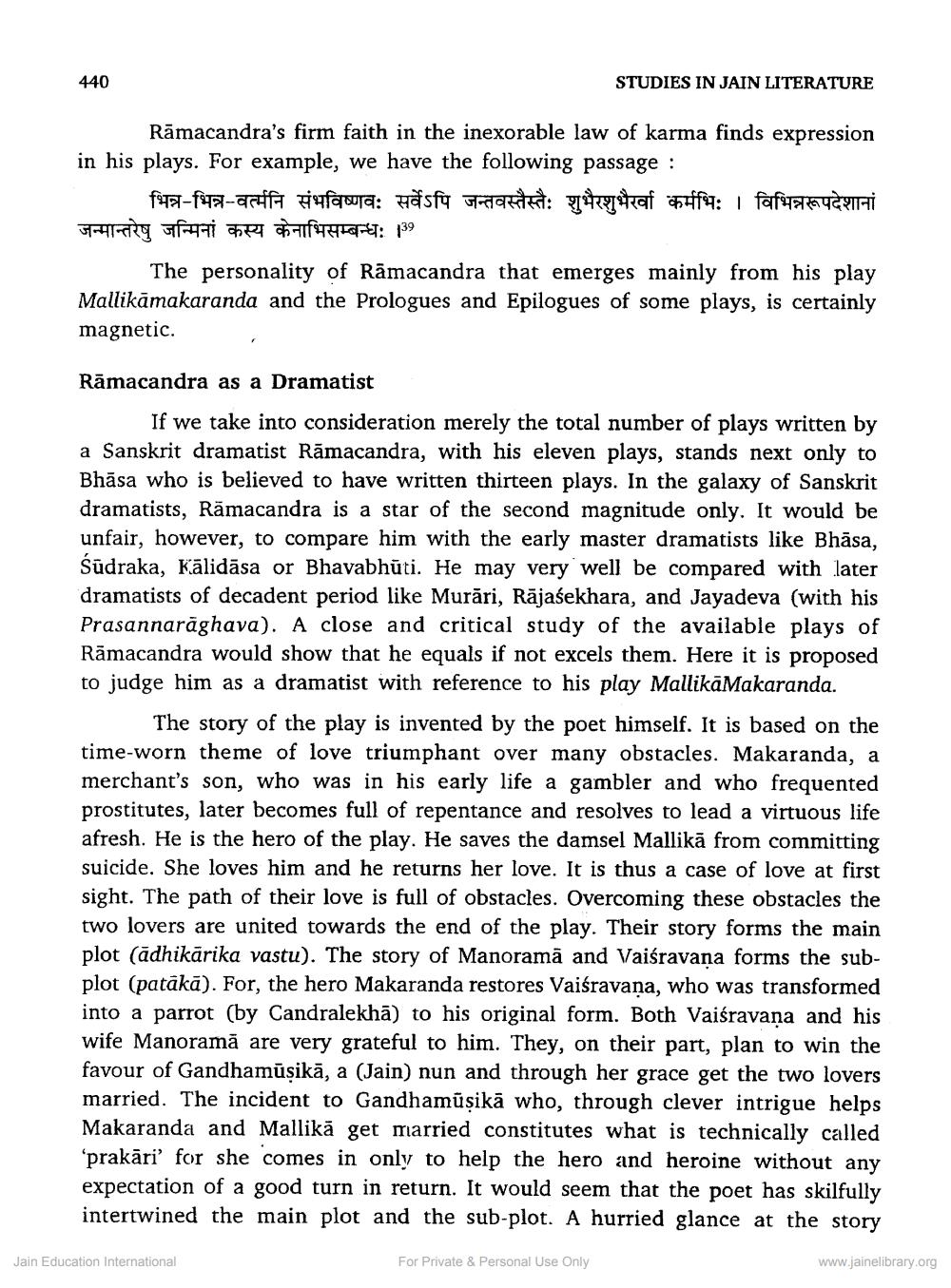________________ 440 STUDIES IN JAIN LITERATURE Ramacandra's firm faith in the inexorable law of karma finds expression in his plays. For example, we have the following passage : भिन्न-भिन्न-वर्त्मनि संभविष्णवः सर्वेऽपि जन्तवस्तैस्तैः शुभैरशुभैरो कर्मभिः / विभिन्नरूपदेशानां जन्मान्तरेषु जन्मिनां कस्य केनाभिसम्बन्धः 139 The personality of Ramacandra that emerges mainly from his play Mallikamakaranda and the Prologues and Epilogues of some plays, is certainly magnetic. Ramacandra as a Dramatist If we take into consideration merely the total number of plays written by a Sanskrit dramatist Ramacandra, with his eleven plays, stands next only to Bhasa who is believed to have written thirteen plays. In the galaxy of Sanskrit dramatists, Ramacandra is a star of the second magnitude only. It would be unfair, however, to compare him with the early master dramatists like Bhasa, Sudraka, kalidasa or Bhavabhuti. He may very well be compared with later dramatists of decadent period like Murari, Rajasekhara, and Jayadeva (with his Prasannaraghava). A close and critical study of the available plays of Ramacandra would show that he equals if not excels them. Here it is proposed to judge him as a dramatist with reference to his play MallikaMakaranda. The story of the play is invented by the poet himself. It is based on the time-worn theme of love triumphant over many obstacles. Makaranda, a merchant's son, who was in his early life a gambler and who frequented prostitutes, later becomes full of repentance and resolves to lead a virtuous life afresh. He is the hero of the play. He saves the damsel Mallika from committing suicide. She loves him and he returns her love. It is thus a case of love at first sight. The path of their love is full of obstacles. Overcoming these obstacles the two lovers are united towards the end of the play. Their story forms the main plot (adhikarika vastu). The story of Manorama and Vaisravana forms the subplot (pataka). For, the hero Makaranda restores Vaisravana, who was transformed into a parrot (by Candralekha) to his original form. Both Vaisravana and his wife Manorama are very grateful to him. They, on their part, plan to win the favour of Gandhamusika, a (Jain) nun and through her grace get the two lovers married. The incident to Gandhamusika who, through clever intrigue helps Makaranda and Mallika get married constitutes what is technically called 'prakari' for she comes in only to help the hero and heroine without any expectation of a good turn in return. It would seem that the poet has skilfully intertwined the main plot and the sub-plot. A hurried glance at the story Jain Education International For Private & Personal Use Only www.jainelibrary.org




